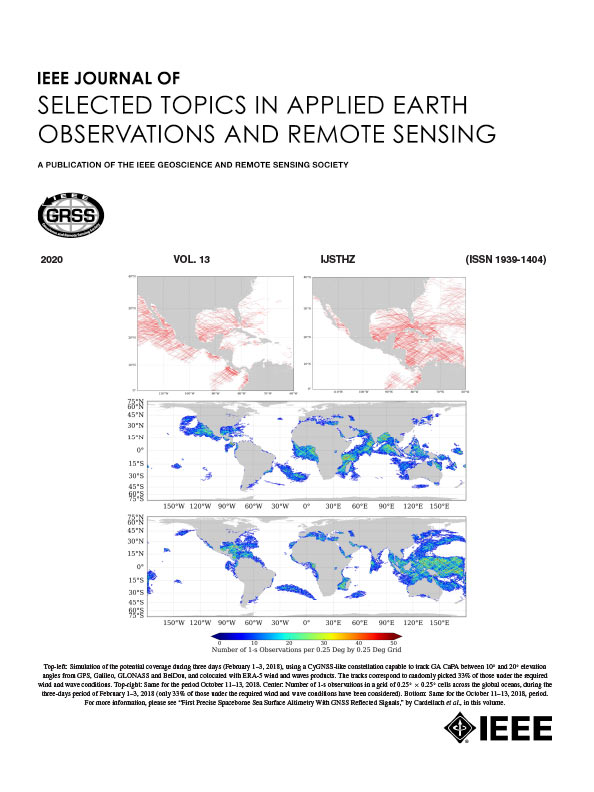A Dual-Strategy Learning Framework for Hyperspectral Image Super-Resolution
IF 4.7
2区 地球科学
Q1 ENGINEERING, ELECTRICAL & ELECTRONIC
IEEE Journal of Selected Topics in Applied Earth Observations and Remote Sensing
Pub Date : 2025-02-17
DOI:10.1109/JSTARS.2025.3542766
引用次数: 0
Abstract
Hyperspectral image super-resolution (HSI SR) has achieved remarkable success with deep neural networks. Currently, most methods in HSI SR assume a predetermined degradation model during training to synthesize low-resolution images. These methods falter when confronted with HSI exhibiting degradation patterns and their limited flexibility restricts practical application. In addition, these methods focus on the complex network designs for superior performance, which entail high resource consumption and limit their broad application. To address these issues, in this article, we propose a dual-strategy learning framework exploring meta-transfer learning for HSI blind SR. This framework can be applied to any SR network and facilitate performance enhancement. First, we pretrain a three-channel SR model on natural image data to address the issue of insufficient HSI data. Furthermore, we innovatively propose a transfer scheme, which directly applies our pretrained three-channel SR model to HSI, thereby significantly enhancing the spectral fidelity. To enhance the model's performance under specific degradation conditions, we incorporate meta-learning, enabling it to adapt to input images after a few iterations. Besides, we introduce attention-based knowledge distillation to equip our final network with the implicit representation capability of a meta network under a lightweight premise. Extensive experiments on three benchmark datasets demonstrate that the proposed approach outperforms existing methods in various degradations.求助全文
约1分钟内获得全文
求助全文
来源期刊
CiteScore
9.30
自引率
10.90%
发文量
563
审稿时长
4.7 months
期刊介绍:
The IEEE Journal of Selected Topics in Applied Earth Observations and Remote Sensing addresses the growing field of applications in Earth observations and remote sensing, and also provides a venue for the rapidly expanding special issues that are being sponsored by the IEEE Geosciences and Remote Sensing Society. The journal draws upon the experience of the highly successful “IEEE Transactions on Geoscience and Remote Sensing” and provide a complementary medium for the wide range of topics in applied earth observations. The ‘Applications’ areas encompasses the societal benefit areas of the Global Earth Observations Systems of Systems (GEOSS) program. Through deliberations over two years, ministers from 50 countries agreed to identify nine areas where Earth observation could positively impact the quality of life and health of their respective countries. Some of these are areas not traditionally addressed in the IEEE context. These include biodiversity, health and climate. Yet it is the skill sets of IEEE members, in areas such as observations, communications, computers, signal processing, standards and ocean engineering, that form the technical underpinnings of GEOSS. Thus, the Journal attracts a broad range of interests that serves both present members in new ways and expands the IEEE visibility into new areas.

 求助内容:
求助内容: 应助结果提醒方式:
应助结果提醒方式:


